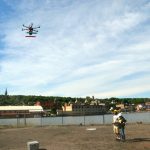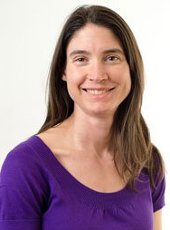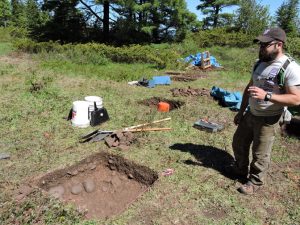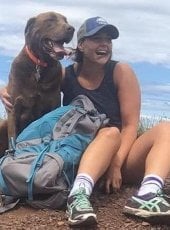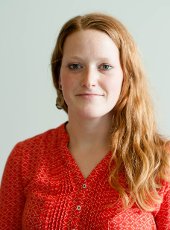 Erin Burkett, Environmental and Energy Policy PhD student, was awarded a $78,497 Michigan Sea Grant Graduate Student Research Fellowship. As a fellow, Erin will work with her faculty advisor Dr. Richelle Winkler and an agency sponsor at the Michigan Department of Natural Resources (Tracy Kolb) on a project that supports existing Great Lakes research. The awarded project, titled “I once caught a fish “THIS BIG”: Using Participatory Photovoice to Understand Michigan’s Great Lakes Anglers”, will explore the reasons Michigan residents participate in Great Lakes recreational fishing.
Erin Burkett, Environmental and Energy Policy PhD student, was awarded a $78,497 Michigan Sea Grant Graduate Student Research Fellowship. As a fellow, Erin will work with her faculty advisor Dr. Richelle Winkler and an agency sponsor at the Michigan Department of Natural Resources (Tracy Kolb) on a project that supports existing Great Lakes research. The awarded project, titled “I once caught a fish “THIS BIG”: Using Participatory Photovoice to Understand Michigan’s Great Lakes Anglers”, will explore the reasons Michigan residents participate in Great Lakes recreational fishing.
|
“How can communities help sustain the health of Lake Superior in the face of mining, climate change, forest change, invasive species, and emerging chemicals of concern? The challenges facing Lake Superior are many–yet local, regional, and international communities overcame enormous threats to the lake’s ecosystems in the past century.
Sustaining Lake Superior asks: What can we learn from the recoveries around Lake Superior over the past century, as we face new interconnected challenges from climate change, synthetic chemicals, and forest change?” Retrieved from http://www.sustaininglakesuperior.com/
|



